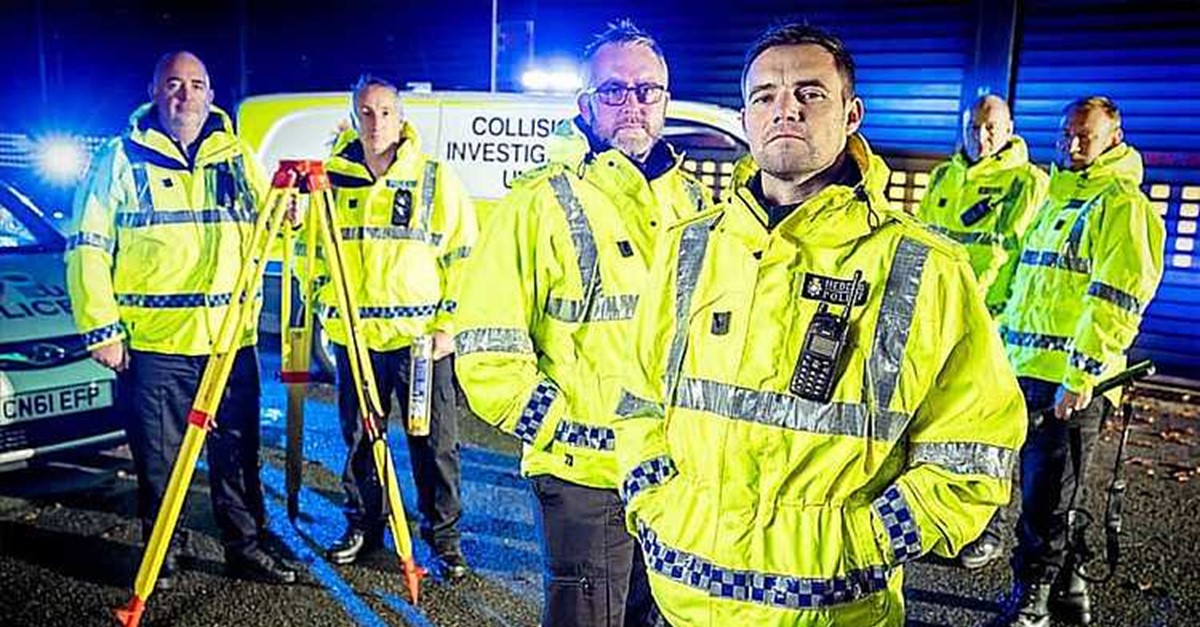Where Are The Detectives Now? Unveiling The Modern Evolution Of Detectives
Have you ever wondered where are the detectives now in this digital age? The world of detective work has undergone a remarkable transformation over the years. From the days of Sherlock Holmes to the era of advanced technology, detectives have adapted to meet the challenges of modern crime. The evolution of detective work is a fascinating journey that combines tradition with innovation, and understanding this transformation is essential for anyone interested in the field of criminal investigation.
As society evolves, so does the nature of crime. Detectives today face challenges that are vastly different from those faced by their predecessors. With the rise of cybercrime, surveillance technology, and artificial intelligence, the role of detectives has expanded beyond traditional methods. This article will explore the current state of detective work, the tools and techniques used today, and how detectives continue to play a vital role in maintaining public safety.
This exploration into "where are the detectives now" will provide valuable insights into the modern detective's world. From understanding their training and skills to examining the impact of technology on their work, this article aims to give readers a comprehensive understanding of how detectives operate in today's complex world.
- Titanic 2 Titanic 2 Titanic 2
- Man Put Fireworks On His Head
- Son Kat Von D
- Karate Kid Cast Now Jaden Smith
- Who Is Anderson Cooper Seeing
Table of Contents
- The History of Detectives
- The Modern Role of Detectives
- How Technology Has Changed Detective Work
- Essential Skills for Modern Detectives
- Training and Education for Detectives
- Challenges Facing Detectives Today
- Ethical Considerations in Detective Work
- The Future of Detectives
- Statistics and Trends in Detective Work
- Conclusion
The History of Detectives
The history of detectives dates back centuries, with roots in literature and real-life investigations. The term "detective" itself originates from the Latin word "detectus," meaning "to uncover." Early detectives were often private citizens who took it upon themselves to solve crimes. Over time, detective agencies like Pinkerton's National Detective Agency emerged, formalizing the profession.
Evolution of Detective Agencies
As crime became more sophisticated, so did the methods of investigation. The establishment of police departments in the 19th century marked a turning point in the history of detectives. These departments created specialized units dedicated to solving complex cases, setting the stage for modern detective work.
- Who Does Joey The Bachelor Choose
- Mr Cee Cause Of Death
- How Did Connor Die Southern Charm
- The Cleaning Lady Arman Death
- Megan Fox Kids Transitioning
- 1840s: Establishment of the first detective unit in London's Metropolitan Police.
- 1850s: Formation of Pinkerton's National Detective Agency in the United States.
- 20th Century: Introduction of forensic science and fingerprinting.
The Modern Role of Detectives
Today, detectives play a crucial role in law enforcement. Their responsibilities range from gathering evidence and interviewing witnesses to analyzing data and collaborating with other agencies. The question of "where are the detectives now" can be answered by examining their diverse roles in modern society.
Types of Detectives
There are various types of detectives, each specializing in different areas of investigation:
- Homicide detectives: Focus on solving murder cases.
- Cyber detectives: Investigate cybercrime and digital forensics.
- Financial detectives: Handle cases involving fraud and white-collar crime.
How Technology Has Changed Detective Work
Technology has revolutionized the way detectives operate. From advanced surveillance systems to data analytics, modern tools have enhanced the efficiency and accuracy of investigations. The integration of technology into detective work has answered the question of "where are the detectives now" by showcasing their ability to adapt to new challenges.
Key Technological Advancements
- Facial recognition software: Helps identify suspects and missing persons.
- Digital forensics: Analyzes electronic devices for evidence.
- Artificial intelligence: Assists in pattern recognition and predictive analysis.
Essential Skills for Modern Detectives
Modern detectives require a unique set of skills to succeed in their roles. These skills include critical thinking, problem-solving, and adaptability. The evolution of detective work demands that professionals possess both technical expertise and interpersonal abilities.
Soft Skills for Detectives
- Communication: Ability to interact effectively with witnesses and colleagues.
- Empathy: Understanding the emotions and motivations of individuals involved in cases.
- Integrity: Maintaining ethical standards in all aspects of work.
Training and Education for Detectives
Becoming a detective requires extensive training and education. Aspiring detectives must complete police academy training and gain experience in various roles before specializing in detective work. Continued education and certification programs ensure that detectives stay updated with the latest techniques and technologies.
Path to Becoming a Detective
- Complete a high school diploma or equivalent.
- Attend a police academy and earn certification.
- Gain experience as a police officer or in a related field.
Challenges Facing Detectives Today
Modern detectives face numerous challenges, including the rise of cybercrime, privacy concerns, and public scrutiny. These challenges highlight the importance of staying informed and adapting to changing circumstances. Understanding "where are the detectives now" involves recognizing the obstacles they encounter and how they overcome them.
Dealing with Cybercrime
Cybercrime presents a significant challenge for detectives, requiring specialized knowledge and tools to combat. The increasing complexity of digital threats demands that detectives remain vigilant and proactive in their approach to investigations.
Ethical Considerations in Detective Work
Ethics play a critical role in detective work, ensuring that investigations are conducted fairly and transparently. Detectives must adhere to strict codes of conduct, respecting the rights of individuals while pursuing justice. The question of "where are the detectives now" also involves examining their commitment to ethical practices.
Key Ethical Principles
- Respect for privacy and personal information.
- Honesty and integrity in all interactions.
- Accountability for actions and decisions.
The Future of Detectives
The future of detective work is bright, with advancements in technology and increased collaboration between agencies. As society continues to evolve, so too will the methods and techniques used by detectives. The question of "where are the detectives now" will continue to be answered by their ability to innovate and adapt.
Predictions for the Future
- Increased use of artificial intelligence in investigations.
- Enhanced international cooperation in solving transnational crimes.
- Focus on mental health and well-being for detectives.
Statistics and Trends in Detective Work
Statistics and trends provide valuable insights into the state of detective work. According to the Bureau of Labor Statistics, employment of detectives and criminal investigators is projected to grow 3% from 2020 to 2030. This growth reflects the increasing demand for skilled professionals in the field.
Key Statistics
- Approximately 116,700 detectives and criminal investigators employed in the United States as of 2020.
- Median annual wage for detectives was $86,940 in May 2020.
- Increased focus on cybersecurity has led to a surge in demand for digital forensic experts.
Conclusion
In conclusion, the world of detective work has transformed significantly over the years, answering the question of "where are the detectives now" through innovation and adaptation. Modern detectives are equipped with advanced tools and skills, allowing them to tackle complex challenges in a rapidly changing world. Their dedication to justice and ethical standards ensures that they remain vital members of society.
We invite you to share your thoughts and experiences in the comments below. Additionally, feel free to explore other articles on our site for more insights into the fascinating world of criminal investigation. Together, we can continue to learn and grow in our understanding of this critical profession.
Data Sources:
- Bureau of Labor Statistics
- FBI Crime Reports
- International Association of Chiefs of Police
Article Recommendations
- Who Is Khloes Father
- Taurus And Aries In Bed
- A Philly Special Christmas
- Megan Fox Kids Transitioning
- Capricorn Man Obsessed With Scorpio Woman



Detail Author:
- Name : Fermin Kuhn
- Username : kamryn.leffler
- Email : luella.yost@yahoo.com
- Birthdate : 1991-12-16
- Address : 68874 Robert Forges East Johann, IN 41718
- Phone : +1-248-319-0606
- Company : Kulas, Harris and Hirthe
- Job : Forming Machine Operator
- Bio : Dolorum earum et omnis tempora asperiores nihil nesciunt. Sunt omnis dolores qui omnis modi at. Ipsa eos unde corporis.
Socials
tiktok:
- url : https://tiktok.com/@audie_gleichner
- username : audie_gleichner
- bio : Quos eum magni impedit sit quae explicabo suscipit.
- followers : 6260
- following : 1298
facebook:
- url : https://facebook.com/audie6306
- username : audie6306
- bio : Delectus placeat expedita ad ut. Est voluptatem in nihil doloribus mollitia.
- followers : 4755
- following : 490
twitter:
- url : https://twitter.com/audie.gleichner
- username : audie.gleichner
- bio : Enim id mollitia nihil sit voluptatibus. Unde ullam dolor non nam qui.
- followers : 218
- following : 2817
instagram:
- url : https://instagram.com/audie.gleichner
- username : audie.gleichner
- bio : Eos quisquam neque ut ipsa ab. Soluta ab illum aperiam quasi cumque delectus quia ut.
- followers : 4969
- following : 2344